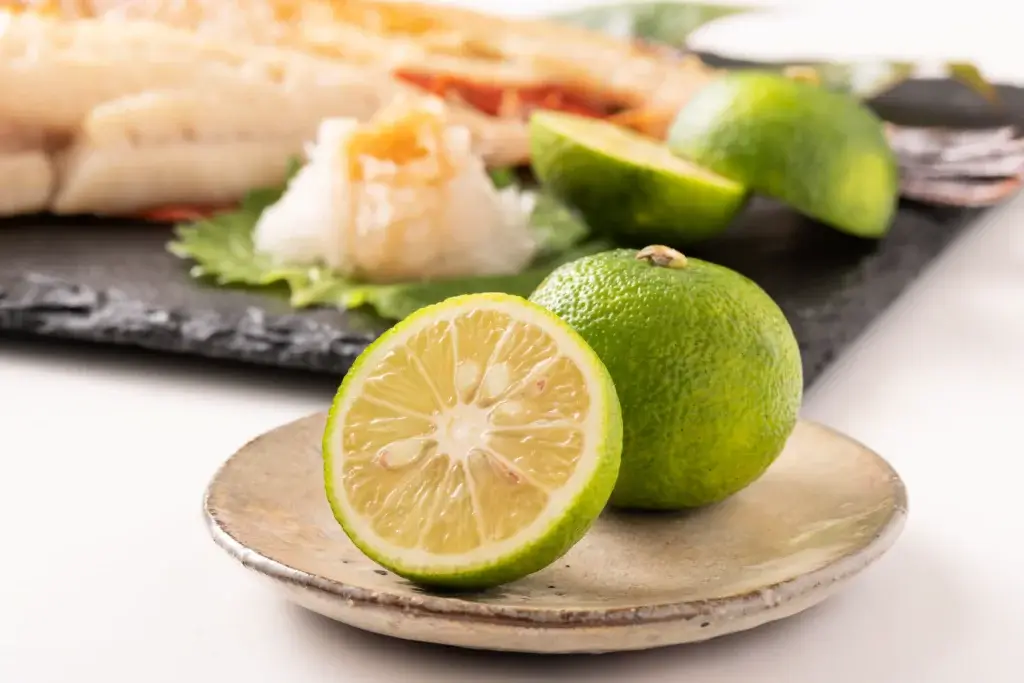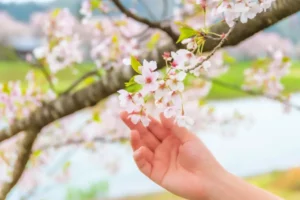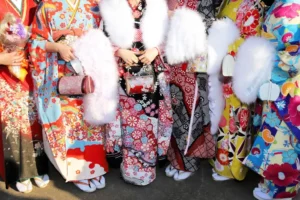The small prefecture of Tokushima is located southwest of Osaka on the corner of Japan’s smallest island, Shikoku. It boasts nearly 80% mountains and numerous beautiful landscapes, making it renowned for its natural wonders. As you explore one excellent destination after another, you’ll work up an appetite. Fortunately, Tokushima Prefecture is also famous for its ingredients that come from natural surroundings.
Table of Contents
ToggleSudachi
Sudachi, a small round green citrus fruit resembling lime, is one of Tokushima Prefecture’s most famous products. Although sudachi develops into yellow, farmers harvest it when it turns green. Sudachi has a strong aroma and sharpness, similar to kabosu (citrus fruit). People squeeze it like lemon or lime to flavor food rather than consume it whole. Half slices of this fruit are a typical garnish with many traditional Japanese dishes, such as fish, udon, and some alcoholic beverages. Additionally, sudachi contains vitamin C, which helps boost the immune system.
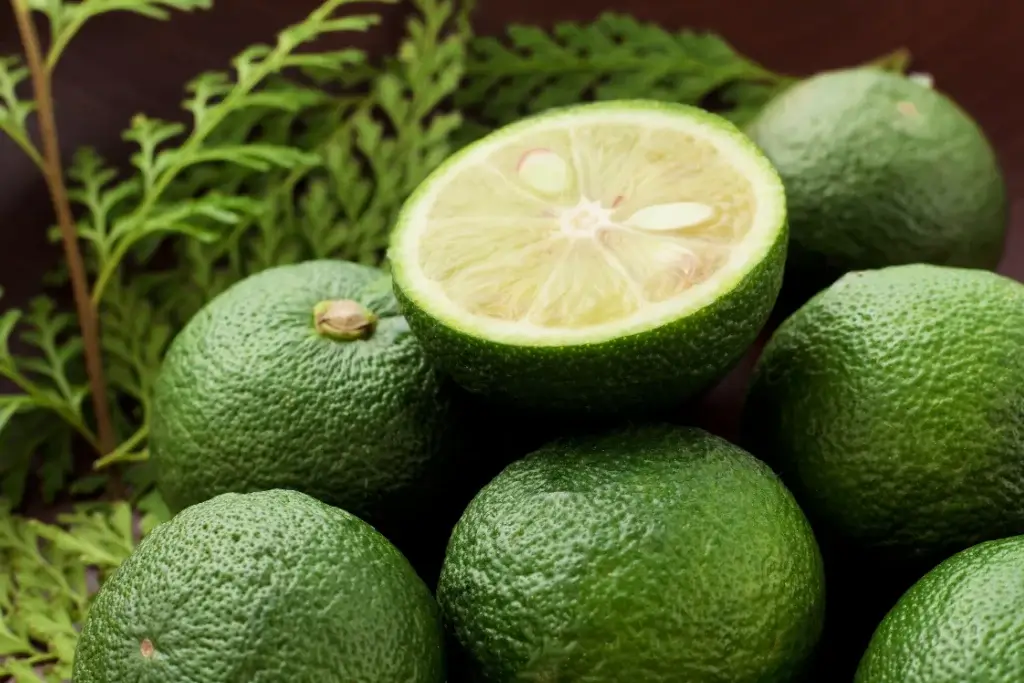
This citrus fruit is a versatile ingredient that can enhance the flavor profile of various dishes. One delightful option is to enjoy cold somen noodles with sudachi lime, where the citrusy notes of sudachi complement the light somen noodles in an icy shiro dashi soup broth. Chilled chicken and citrus somen noodle soup offer a refreshing combination of tender chicken breast, crunchy cucumbers, soft-boiled egg, and slices of sudachi or lime.
You can also use it as a condiment by thinly slicing it to add citrus flavor to dishes like grilled fish or seafood sashimi. Whether used in salads, marinades, sauces, or as a garnish for grilled dishes, sudachi’s sourness and aroma can elevate the flavors of your culinary creations, making it a versatile and delightful addition to various recipes.
Awa Beef
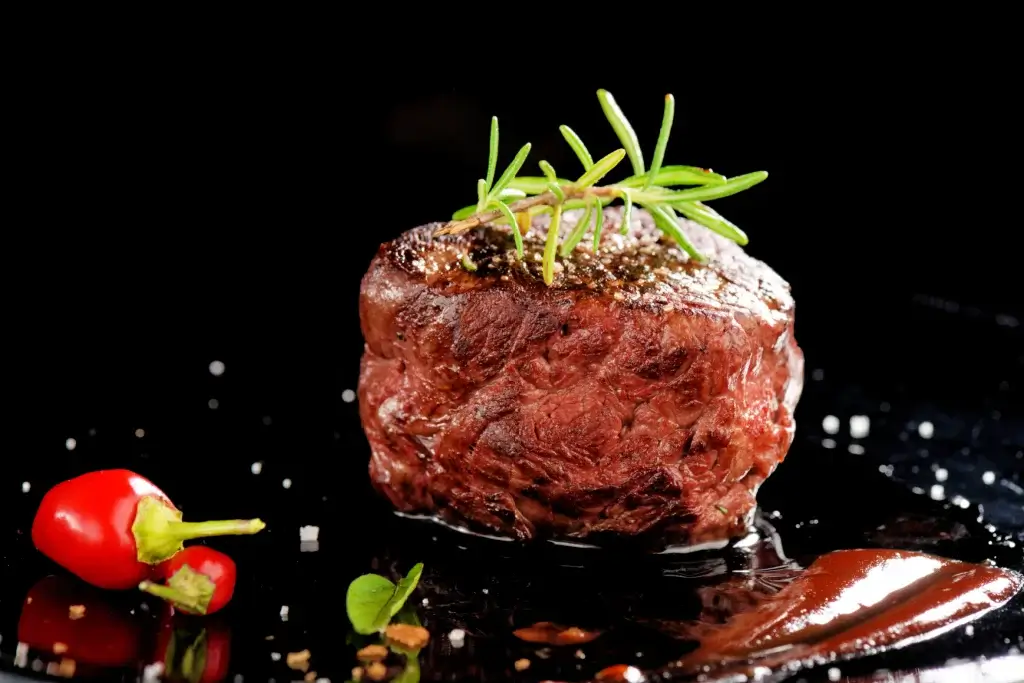
Tokushima was once called Awa Province. The region’s agriculture is very famous, especially its meat. Awa beef has a soft, chewy texture and sweet flavor. It has a good balance between lean meat and fat. You can fully enjoy its beautiful marbling and mellow flavor. Beef can only be Awa beef if it achieves grade five or higher on a strict scale. This high-end beef can be a simple steak or in a decidedly more Japanese shabu-shabu hot pot.
Looking to enjoy traditional Japanese delights without leaving your home? Check out Sakuraco! Sakuraco delivers traditional Japanese snacks, teas, and sweets from local Japanese makers directly to your door.
Iya Soba
Iya soba (soba kiri) is a thick soba that uses traditional buckwheat flour. It doesn’t have additional thickeners and has a rough texture and short, thick-cut noodles. Moreover, you can enjoy these noodles at spots across Tokushima. For example, some ryokan (Japanese-style inns) and soba restaurants serve wonderfully slurpable soba noodles.
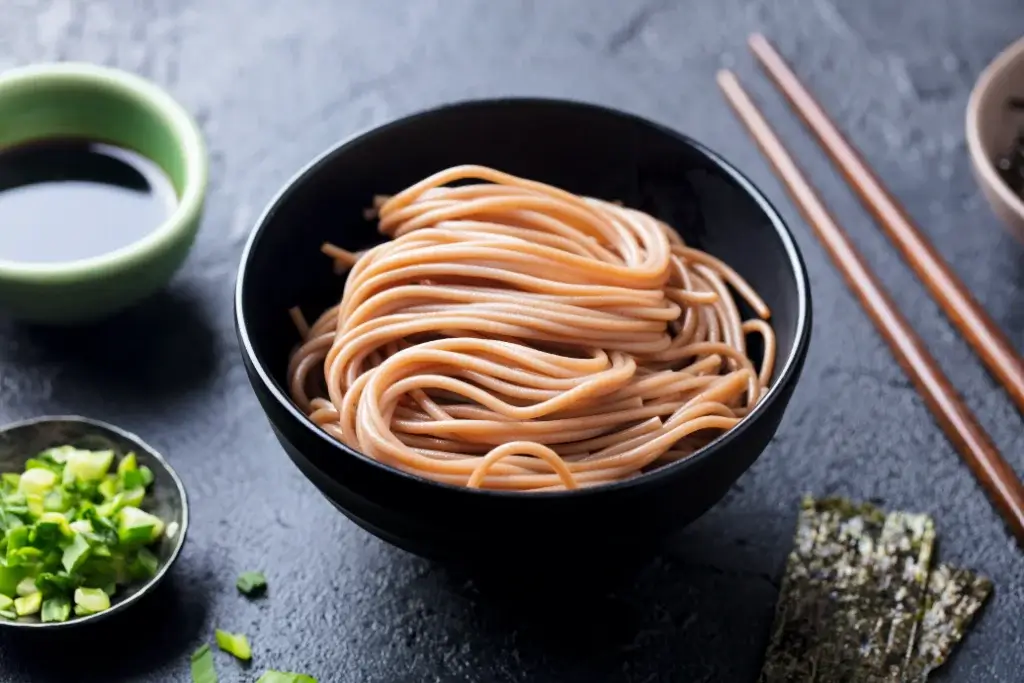
The fragrant noodles also use natural spring water, making for a hearty, nutritious meal. It has a deep taste that differs from standard soba. Add them to a lightly flavored stock broth to enjoy soba’s original taste and aroma.
Dekomawashi
Dekomawashi is a traditional dish from Miyoshi City. This dish resembles deku (a doll in Japanese theater) and mawashi (turning something around). Dekomawashi is skewered soba potato dumplings, sweetfish, and rainbow trout. It is basted with miso sauce and then grilled over an open flame. Often paired with river fish, dekomawashi is sweet and savory.
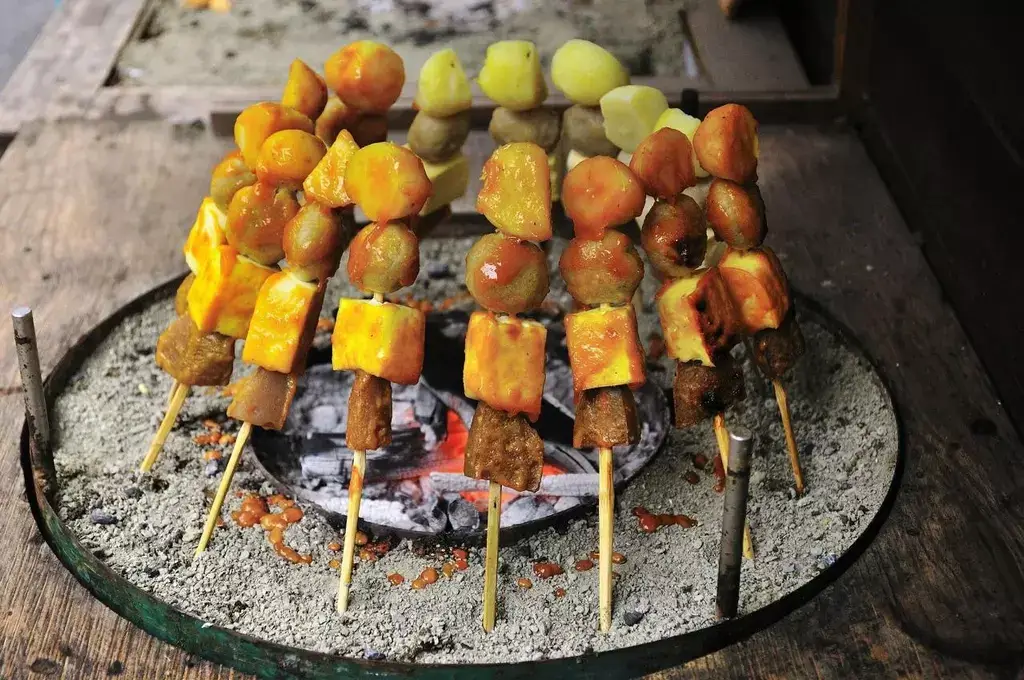
You can head to Takimi Shokudo, a ten-minute walk from the Iya Kazurabashi Bridge. Here, you can enjoy this dish’s traditional flavor with charred and wonderfully fragrant sweet miso. Don’t miss this fantastic food if you ever visit over there!
Tarai Udon
Udon is the longest-loved noodle dish among Japanese people, popular throughout Japan. Tarai udon is a regional specialty in Awa City. It’s best for special occasions, like dinner parties or celebrating special events. The freshly boiled udon noodles are poured straight from the pot into a washbasin-like container. Then, everyone enjoys them together. Their heartiness is what makes them so good!
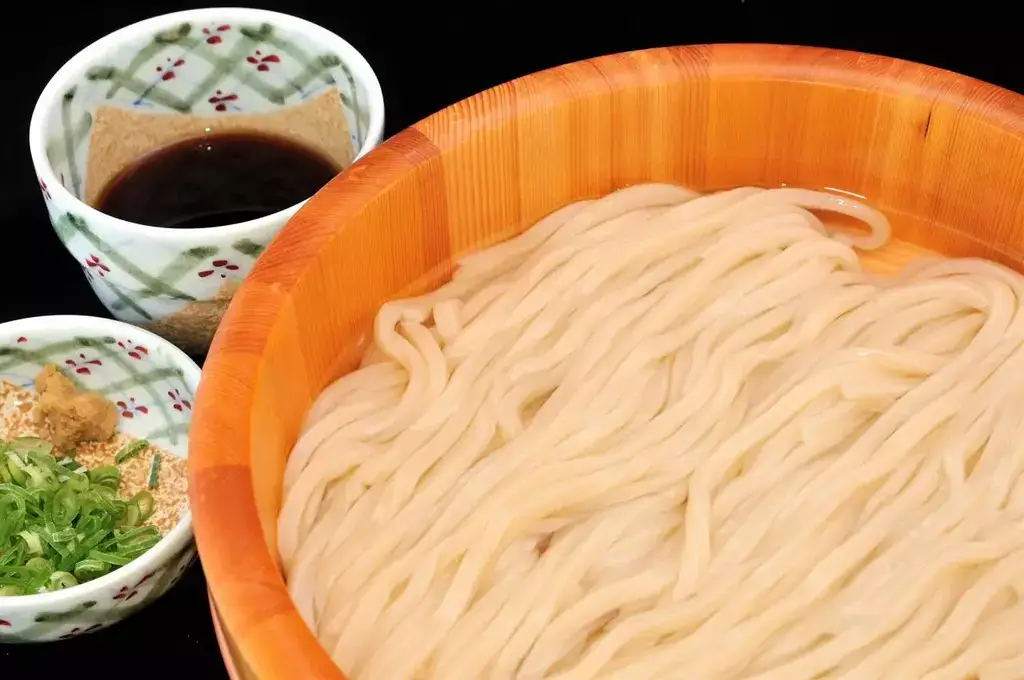
The thick udon noodles are served in the same water they were cooked in. After that, they are dipped in a broth. To ensure the dipping broth isn’t watered down, the trick is to dry the noodles on the side of the tarai. Tarai Udon Niimiya, close to the Miyagawauchi River, is a fantastic place to enjoy the dish. The dipping broth uses a secret recipe of ten different ingredients. The restaurant also has a great location overlooking a clear stream, another selling point.
Why should I try Tokushima foods like sudachi?
The many sights of Tokushima are bound to build up quite the appetite. Fortunately, the prefecture also has plenty of unique local dishes. Tokushima’s agricultural produce is well prized for its quality and is known as the kitchen of the Kansai region. They make delightful and unique dishes that many locals love.

The food from Tokushima has a lively history, often relating to local folklore and legends. You can enjoy these luscious foods once you visit this prefecture. Have you tried any of these foods from Tokushima? Do you have a favorite one? Let us know in the comments below!

